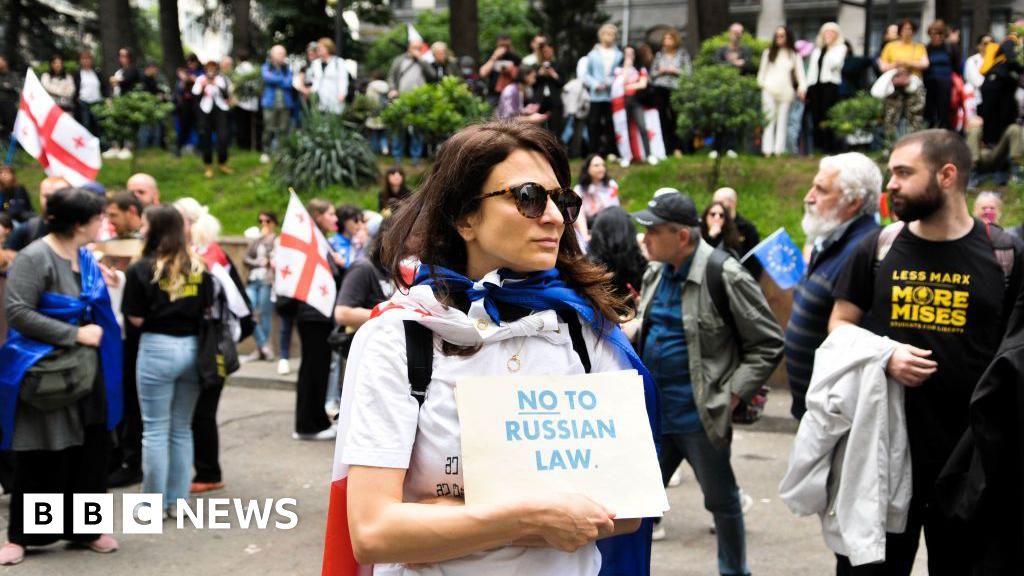Georgia lawmakers voted to override the president’s veto of a controversial “Foreign Influence Transparency” bill, commonly known as the “Foreign Agents Act,” which has sparked weeks of protests in the capital, Tbilisi.
Under the legislation, media and non-governmental organizations with more than 20% of their funding coming from abroad must register as “organizations acting in the interests of foreign powers” and undergo strict audits or face punitive fines.
The vote was passed at Tuesday’s plenary session with 84 votes in favor (mainly from the ruling Georgian Dream party) and 4 against (with the opposition abstaining).
The law has Passed on May 14th, But it was later vetoed by pro-Western President Salome Zurabishvili.
The law is expected to take effect in 60 days.
The Georgian government argued that it would ensure transparency in financial flows to support NGOs and protect Georgia from foreign interference.
But its opponents – calling it “Russian law” due to its similarity to existing Russian law – argue the real reason for the legislation is to stifle dissent ahead of October parliamentary elections.
The EU said it “deeply regrets” the Georgian parliament’s decision.
EU officials have previously warned that the bill could jeopardize further progress within the bloc. Georgia received candidate status in December 2023.
Many NGOs have announced that they will not comply with legislation that requires them to declare “acting in the interests of a foreign power” because they describe it as “insulting” and “factually incorrect”.
People gathered again outside parliament amid a heavy police presence on Tuesday as lawmakers debated the bill.
When the results were announced, many protesters shouted “Slaves!” and “Russians!”
Police have repeatedly used force to disperse protesters since the protests began.
Dozens of opponents of the foreign agents law were reportedly beaten or intimidated, had insulting posters posted outside their homes, or received threatening phone calls.
Still, more than six weeks since the protests began, demonstrators, many of them young, feel they have no choice but to continue taking to the streets.
“Our entire future is at stake, and if it’s not Europe, there’s nothing,” said 18-year-old Kato, standing with friends outside parliament.
Observers believe that the passage of the Foreign Agents Act has turned into a battle for survival for Georgian Dream, with the company alienating many of its traditional partners in the process.
The United States joins the European Union in warning that the law will have consequences. The U.S. State Department said last week it would impose travel restrictions on people and their families who “undermined democracy” in Georgia.
But authorities ignored the warnings. Georgian Dream Secretary General and Tbilisi Mayor Kakha Kaladze said there would never be a “trade-off” against the national interest.
Knowing she had run out of options to stop the government from passing the bill, Ms Zorabishvili submitted a new charter on Monday that she said would be a plan to push Georgia toward Europe.
“To rebuild trust, we need a new political reality: unique unity, different elections, a different parliament and a different government,” she wrote on X.
The charter includes the repeal of laws she says harm Georgia’s chances of joining the EU, as well as major reforms aimed at depoliticizing the justice system and security sector.
Ms Zurabishvili invited all opposition parties to sign the charter before June 1 and unite to participate in the October parliamentary elections.

